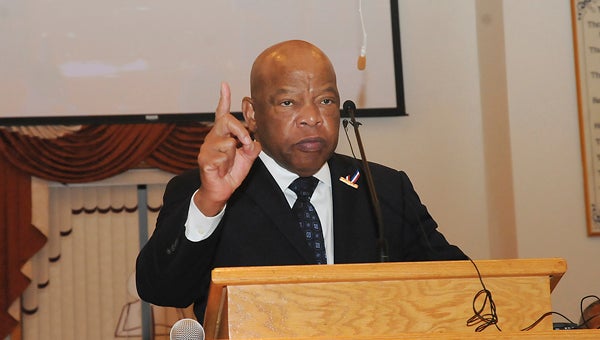New coronavirus relief package signed into law
Published 7:22 am Saturday, April 25, 2020
|
Getting your Trinity Audio player ready...
|
After clearing the U.S. Senate earlier this week, the Interim Emergency Coronavirus Relief Package, the fourth COVID-19 response package passed by Congress, cleared the U.S. House of Representatives Thursday evening and was signed into law by the president Friday.
“I am hopeful that this legislation will offer relief to our small businesses, healthcare providers and states as they battle the coronavirus,” said U.S. Rep. Terri Sewell, D-AL, who took to the House floor in support of the measure before casting her vote. “I am especially pleased with the provisions in the legislation that take steps to address the inequities of the Paycheck Protection Program (PPP). Moving forward, we should build on these improvements to ensure that businesses in underserved communities are able to access the resources they need to succeed.”
The package approved Thursday includes $320 billion in new funding for the PPP, which provides forgivable loans to small businesses that keep employees on payrolls for eight weeks and ran out of funding last week.
“I’ve heard too many stories from frustrated business owners who have been unable to access the Paycheck Protection Program due to a lack of an existing relationship with a lender or difficulty navigating the complex application process,” Sewell said. “And these issues are disproportionately harming the rural and minority-owned businesses that make up the heart of my district. It was necessary to address this injustice and directly allocated funding to lenders that service the beauty salons, barber shops and restaurants on Main Streets across the country.”
The changes made to the PPP in the latest relief package are designed to improve the program
By expanding access for small businesses in underserved areas, including rural, minority-owned and underbanked businesses, and provides a $60 billion set-aside for small and midsized banks, credit unions and community-based lending institutions.
The money is meant to ensure that unbanked and underbanked businesses have access to the program.
Additionally, the most recent legislation includes funding for a number of other relief programs, including the Small Business Administration’s (SBA) Economic Injury Disaster Loan (EIDL) program, which has also been depleted – the bill provides an infusion of $50 billion for the program to help businesses cover operating expenses, such as payroll, rent and utilities and more.
Further, the bill provides an additional $10 billion for the administration’s EIDL grant program, which has also run out of money – the program provides up $10,000 in cash advances for immediate relief for small businesses and eligible nonprofits.
Also included in the legislation were the following provisions:
• Agricultural enterprises with less than 500 employees are now eligible to receive grants of up to $10,000 and low-interest loans of up to $2 million through the SBA’s EIDL programs;
• Hospitals and healthcare workers will receive $75 billion to reimburse the cost of healthcare-related expenses or lost revenue as a result of the COVID-19 pandemic;
• A requirement that the Secretary of the U.S. Department of Health and Human Services (HHS) provide a federal report, no later than 21 days after passage of the legislation, detailing the number of cases, hospitalizations and deaths due to COVID-19 – complete with demographic information related to race, ethnicity, age, sex and more – to be updated every 30 days;
• Funding for COVID-19 testing-related expenses: $11 billion for states, localities, territories and tribes to use for testing and related activities, $600 million for community health centers, $225 million for rural health clinics and $1 billion for testing for the uninsured.



